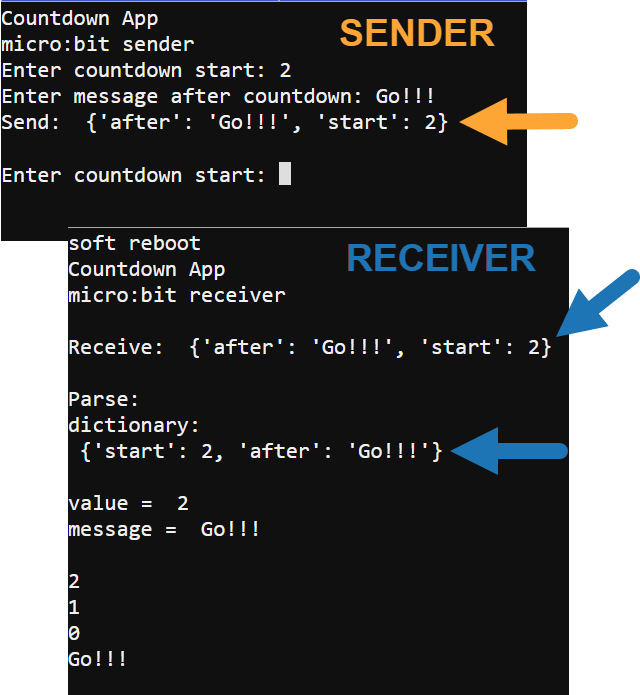Curious how a dictionary might start out as {'start' : 3, 'after' : 'Liftoff!'} in the transmitter but end up as {'after' : 'Liftoff!', 'start' : 3} in the receiver? You might be able to see it by printing the dictionary immediately after the eval statement.
- Modify the countdown_receiver script by adding the statement with the # add comment shown here. Don’t change anything else in the script.
dictionary = eval(packet)
print("dictionary: \n", dictionary, "\n") # add
value = dictionary['start']
message = dictionary['after']
- Flash the receiver with the modified script.
- Enter 2 at the start prompt and Go!!! at the message prompt.
- Verity that the sender and receiver terminals resemble these:

What happened?
When you run the modified scripts and enter the start count and message after, it might look like this. The Send and Receive strings are the same {'after': 'Go!!!', 'start': 2}. Then, after dictionary = eval(packet), the order of the dictionary has changed to {'start': 2, 'after': 'Go!!!'}. Each value is still paired with its key, but the order of the key-value pairs is different.
The application still worked correctly because value = dictionary['start'] still retrieved the 2 value that was paired with the 'start' key. Likewise, message = dictionary['after'] also retrieved the 'Go!!!' string value that was paired with the 'after' key.
